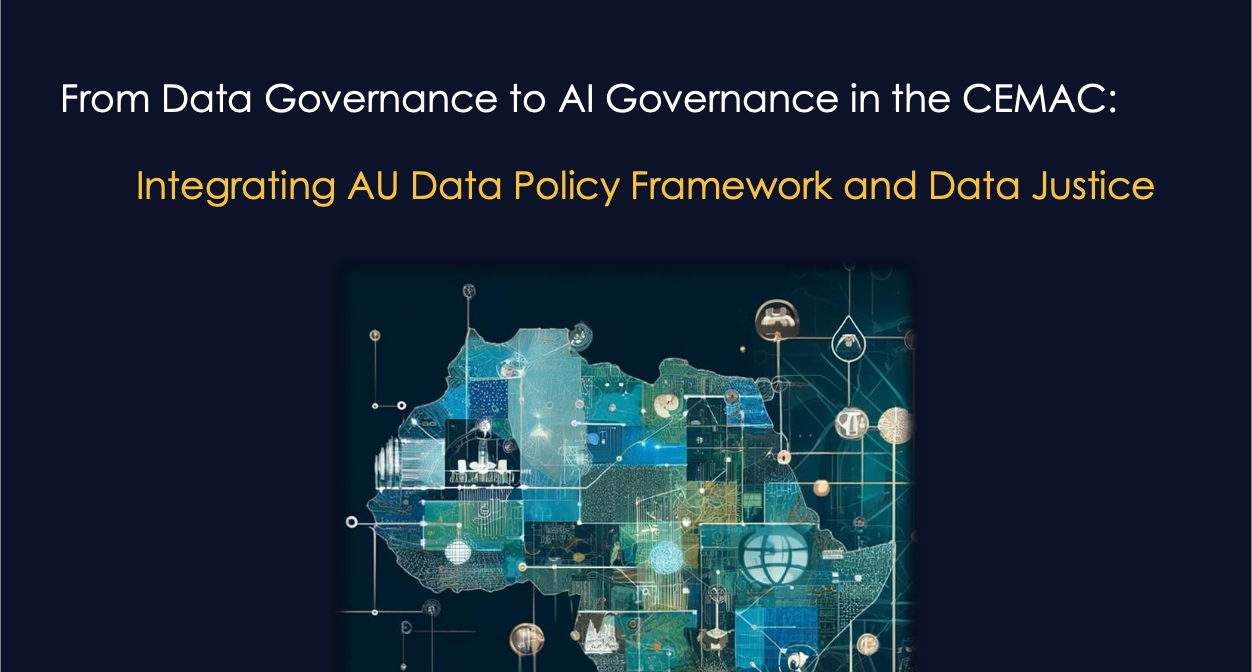Fendji Ebongue Kedieng, Jean Louis, Ngounou, Charlie
Data governance and artificial intelligence (AI) governance have become critical for socio-economic development. As AI systems process and generate data in unprecedented ways, robust governance mechanisms are necessary to ensure the ethical, transparent, and equitable use of data and AI. This is especially important for the Economic and Monetary Community of Central Africa (CEMAC), consisting of Cameroon, Central African Republic, Chad, Equatorial Guinea, Gabon, and the Republic of Congo.
The African Union (AU) has developed a Data Policy Framework to help member states, including those in CEMAC, manage data as a strategic asset for national development and global integration. However, transitioning from data governance to AI governance introduces new challenges, such as addressing algorithmic bias and ensuring transparency in AI systems.
Integrating data justice principles is crucial in the CEMAC region to prevent AI from exacerbating existing inequalities. Data justice emphasizes fairness, transparency, and accountability, ensuring that marginalized communities benefit from AI advancements. This report addresses CEMAC’s unique challenges and opportunities in implementing data and AI governance frameworks aligned with the AU Data Policy Framework while incorporating data justice.
CEMAC faces challenges like fragmented regulatory environments, limited digital infrastructure, and varying levels of digital literacy and policy development. Despite these obstacles, AI technologies offer significant opportunities for economic diversification, innovation, and improved governance. AI can enhance sectors such as healthcare, agriculture, and public administration by optimizing processes, improving decision-making, and expanding access to services.
AI governance adds complexities beyond traditional data governance, as it must manage machine learning systems, algorithmic transparency, and the potential for reinforcing social inequities. A comprehensive approach is needed to ensure responsible AI development that promotes fairness, inclusivity, and human rights.
This report aims to evaluate how CEMAC countries can align their data governance policies with the AU Data Policy Framework and address AI governance challenges. Integrating data justice principles into AI policies will help ensure equitable distribution of AI benefits, especially for marginalized communities. By fostering transparency, accountability, and equity in AI governance, CEMAC can build public trust in AI technologies.
The report also proposes a roadmap for implementing AI governance frameworks tailored to the socio-political and economic contexts of CEMAC member states. Harmonizing legal frameworks, fostering regional collaboration, and building technical capacity will enable responsible AI deployment and help CEMAC lead in ethical AI development while mitigating potential risks.
 Loading...
Loading...
📎 Download the file here 👇:


